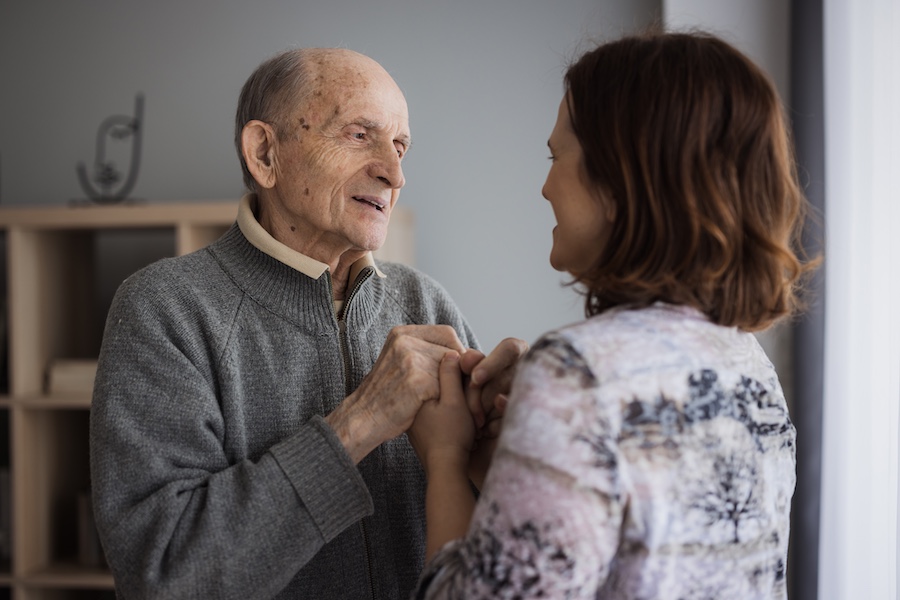
As our parents age, it’s common for roles to reverse. Instead of being supported and assisted by our parents, now it’s our turn to offer support, advice, care, and even some discipline. You might check in several times a week to help with household tasks, attend doctor’s appointments, ensure they’re eating well, or confirm medications are taken as prescribed. Whether you’re stopping by in person or calling to check in, caregiving often becomes a regular part of daily life.
While caring for a parent or elderly loved one can be rewarding, it can also bring challenges, especially when balancing your own budding family or career.
Over the years, your parents’ care needs will likely intensify, and if your parent remains home – often alone – the demands and worries only increase. Without enough support, it’s easy for family caregivers to experience caregiver burnout or fatigue. It’s real. This is one of the most common reasons families begin to shop around for a retirement community like Jackson Creek Senior Living that might offer more daily support, care, and socialization than they can provide.
Avoid Caregiver Burnout
Fatigue, burnout, call it what you want, but when individuals are responsible for caregiving for their parents, older friends, or relatives, there is a strain that mounts that can also affect the caregivers’ well-being. Yes, people who care for seniors—whether they’re family members, friends, or professional caregivers—can, and often do, experience burnout. It’s a well-documented phenomenon.
This fatigue can be caused by watching a loved one decline, especially when facing a condition such as Alzheimer’s or related dementia. Caregiver burnout is also caused by physical demands such as bathing, dressing, or other activities of daily living that can be exhausting. Many caregivers are on their own, which only intensifies the pressure to stay on top of their loved ones’ needs. Caregivers may also face financial stress if they have to cut back on work.
If you know someone caring for a parent, watch for signs of burnout, including constant fatigue, mood swings and irritability, resentment, withdrawing from typical social events, trouble sleeping, or changes in appetite.
So, what can a caregiver do to refresh? Experts say it’s important to take breaks for yourself. If you have siblings who can help, encourage sharing the responsibilities so the duties are more of a team effort. Additionally, consider joining a support group or book club that tackles caregiving topics. Sometimes, it’s helpful to know others are facing similar challenges, and these peers may share information that helps them cope. It’s important to create boundaries, too. In some situations, you should encourage your parent or loved one to get professional help – you can’t do it all. Another tactic many health professionals recommend is tapping into local resources. For example, many regions have area councils on aging or senior centers; these can be a wealth of helpful information.
And finally, experts suggest some self-care. Whether it is taking time to meditate, take a walk, or visit a gym, having a daily and healthy routine that gives you a physical and mental break can help you balance the challenges of caregiving for others.
As we approach the summer season, another potential option is suggesting that your parent try a respite stay in a senior living community. These stays, often lasting a few weeks or a month, provide fully furnished apartments, care services, meals, and social engagement for your loved one, so you can take time off to enjoy a worry-free vacation or attend important events and appointments. Day Retreats may also be available to support families’ weekday caregiving needs.
For more information about local resources, short-term respite stays, or how to avoid caregiver burnout, please give the team at Jackson Creek Senior Living a call at 719-259-1331 or visit jacksoncreekseniorliving.com.



